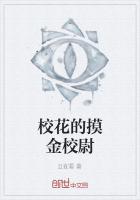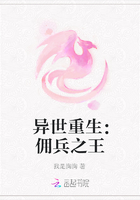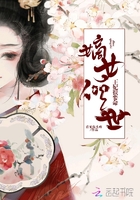lidng
ci
词
measure word
ge 个measure word for or objectpeopleyi ge en 一个人 san ge bao 三个包
weimeasure word ?orpeopleyi wei lao sh一位老师
位(used in polite way)liSn. wGi ) > 两位客人
kou 口measure word for familysan kou 6门 三口人
Jin 斤half kgyi jln ping guo 一斤苹果 yi jln xiang jiao 一斤香蕉
gong jln 公斤kgyi gong jln zi 一公斤橘子
shuang 双double,two,pairyi shuang kuai zi 一双筷子 yi shuang shou 一双手
bei 杯cupyi bei shu一*杯水 yi bei jiu 一杯酒
ping 瓶bottleyi ping pi jiu 一瓶啤酒 yi ping xiang shu一 瓶 香 水
zhT 支branchyi zhT b一支笔 yi zhT hua 一支花
benmeasure word used for bookyi ben shG 一本书
本andmagazineyi ben za zhi 一本杂志
shu 束bunchyi shu hua 一束花
ba 把holdyi ba san 一把伞 yi ba hua 一 把 花
zh!measure word for object,yi zhmao 一只猫
只especially for animalyi zhlao h( 一只老虎
jian 件pieceyi jian yfu 一件衣服 yi jian xu 一件T恤
kuai 块piece, loaff恶n 、丨、
?h/ng 张sheet, measure word for flat thingsyi zh/ng piao 一张票 yi zh/ng zhuo zi 一张桌子
liang 辆measure word for vehicleyi liang qi che 一辆汽车 yi liang zi xing che 一辆自行车
ci 次timequ guo yi ci 去过一次 yi ti/n I6ng ci 一天两次
bian 遍all overZhe ben shG wo kan 这本书我看 guo Ii5ng bian 过两 遍 Zhe zh/ng wo ting 这张CD我听 guo yi bian 过一遍
tiao 条measure word for long thingsyi tiao ku zi 一条裤子 yi tiao lu 一条路
SVWo This is a basic structure.
Wo chT fan eg:我吃饭。
Ieat food.
Wo shi ao da ya en 我是澳大利亚人。
Iam Australian.
.S+¥艮十Chinese language uses )艮” to replace “be,,。
Ta hen piao liang eg:她很漂亮。
She is beautiful.
Fang zi hen da 房子很大。
The house is big.
Tou fa hen chang 头发很长。
The hair is long.
Chinese language does notuse “be,,so often. But if the
speaker wants to stress something,he can use such structure:SV
be 十很 +Adj.
99
Ta de jia shi hen da eg:她的家是很大。
Her house is really big.
It can also be used after “but” when stating something contrary to the first statement.
丁a shi piao liang bu guo ta bu cong ming eg:她是漂亮,不过她不聪明。
She is beautiful,but she is not clever.
3.SVTimeVWo Sometimes also can use “Time+S+V
Vo”
eg
Wo ming tian qu bei jing Ming tian :我明天去北京。or明天
I,ll go to Beijing tomorrow.
Wo men san dian dao de nan jing
京。
wo qu bei jing 我 去 北 京
我们三点到的南 We arrived at Nanjing at 3 But not such following time, Wo chang chang qu bei jing
我常 常去北京。
I often go to Beijing.
We can’t say:
Chang chang wo qu bei jing 常 常我去北京。
o’clock.
like often,usually,always,etc.
(wrong sentence)
4.S+Place+V+o
Wo zai nan jing xue xi han yu eg:我在南京学习汉语。
I study Chinese inNanjing.
Ta zai jia chi fan 他在家吃饭。
He eats at home.
5.S+Time+Place+V+o
Wo jin tian zai jia chi fan eg:我今天在家吃饭。
He ate at home today.
丁a chang chang zai gong sxue han yu 他常 常在公司学汉语。
He often studies Chinese in the company.
6.“了”usually used as a particle,showing some action has happened,or something is changing.
“了”常常用来表示动作的发生,也可以表示状态的变化。
Wo chi 3 eg:我吃了。
I ate.
Wo wang 3 我忘了。
I forgot it.
? 0 ?
Tian leng 3 天冷了。
It is getting cold.
Wo * 3 我饿了。
I am hungry.
e
7.“白勺” also can be used to show some action has happened, but here the “ 的,,often used to stress something. The structure is often as ‘‘是......的*。
“的”也可以用来表示动作的发生,不过“的”更多用来表示强 调。常常用“是……的”结构来表示。
W6 ?u6 tion 8i e nan jln. eg:我昨天来的南京。
It is yesterday that I came to Nanjing.
Shi to gao su wo e 是他告诉我的。
It is him who toldme this, guo
8.“过 ” also can be used referring to the verb that has already happened,but it is usedmainly to stress the experience.
“过”也可以作为动词,表示“巳经发生了”,但这个词大多强调
Zao fan wo chguo 3 eg:早饭我吃过了。
I ate the breakfast.
She 6u wo chguo 蛇肉我吃过。
I had eaten snake meat before.
Wo qu guo bei jing
我去过北京。
I have been to Beijing.
Wo qu 3 gong s!
我去了公司。
I went to the company.
wo qu guo
Here usually we don’t say “我去过 happens almost everyday.
gong s!
公 司 ”。Because it
zhe
9.“着 ” often shows the action is happening now,or is continuing.
“着”常常表示动作正在发生或者持续。
Ta zai shui zhe eg:他在睡着。
He is sleeping.
Men kai zhe 门开着。
The door is open.
03
zhe
0.Verbi 十着十 Verb shows Verb is happening while Verbi is happening as well.
This structure表示动作发生的时候,动作也同时发生。
Ta tang zhe kan dian shi eg:他躺着看电视。
He is watching TV while lying down.
丁a xiao zhe shuo
他笑着说。
He is speaking while laughing.
wen
问
question sentence
NT hao ma !你好吗?How are you?
Hao ma .好吗?oK?
QTng man dian"r shuo jian dan 3.请慢点儿说,简单 dian"r hao ma 点儿,好吗?Please speak slowly and simply,oK?
NT xin ma 4.你信吗?Do you believe?
NT , sui 5.你九岁?How old are you? (asking kids under 0 years old)
NT duo da 6.你多大?How old are you?
i. ? ? - v . v I v ? Ni jia you ji kou en 7.你家有几口人?How many people are there in your family?
JT ge 8.几个?How many or how much?
Nin jT wei 9.您几位?How many of you?
NT shi shei 0.你是谁?Who are you?
NT zhao shei !你找谁?Who are you looking for?
NT gen shei zai yi qT .你跟谁在一起?Who is with you now?
NT gen shei q< 3.你跟谁去?Who will go with you?
NT yao shen me 4.你要什么?What do you want?
NT yao duo shao 5.你要多少?How many or how much do you want?
Hai yao bie de ma 6.还要别的吗?Anything else?
Zhe ge duo shao qian 7.这个多少钱?How much is this?
JT dian 8.几点?What time?
Shen me shi hou 9.什么时候?When?
JJn tian jT hao 0.今天几号?What is the date?
JJn tian xing qjT .今天星期几?What day is today?
NT q< shang hai jT tian .你去上海几天?How many days will you stay at Shanghai?
NT yao na ge 3.你要哪个?Which one do you want?
NT q< na"r 4.你去哪儿?Where are you going?
Yi qq< hao ma 5. -起去,好吗?Let’s go together,oK?
NT de sheng ri shi jT yue jT hao 6.你的生日是几月几号?What is your birthday?
NT shr na guo en 7.你是哪国人?Where are you from?
NT shi shen me di fang 6n 8.你是什么地方人?What region are you from?
NT zai shen me di fang 9.你在什么地方?Hiere are you?
NT cong n6 lai 30.你从哪儿来?Where do you come ?rom?
NT shen me shi hou qu bei jing 3.你什么时候去北京?When will you go to Beijing?
NT lai zhong guo duo chang shi jian 3.你来中国多长时间 le 了?How long have you been to China?
Xln jie kou zen me zou 33.新街口怎么走?How can I get to Xinjiekou?
NT zen me qu bei jing 34.你怎么去北京?How wil you go (o Beijing?
Wo de yfu zen me yang 35.我的衣服怎么样?What do you think of my clothes?
NT xT huan shen me yan se 36.你喜欢什么颜色?What color do you like?
Ming tian zen me yang 37.明天,怎么样?How about tomorrow?
Ba kuai zen me yang 38.八块,怎么样?How about 8 kuai?
NT jue de zen me yang 39.你觉得怎么样?What do you think?
Bei jing % nan jing yuan ma 40.北京离南京远吗?Is Beii ing far from Nanjing?
Cong bei jing dao nan jing zuo fei 4.从北京到南京坐飞 C yao jT xiao shi 机要几小时?How long it will take from Beijing to Nanjing by plane?
NT wei shen me xue han y( 4.你为什么学汉语?Why do you study Chinese?
NT bshi mei guo 6n ma 43.你不是美国人吗?Aren’t youAmerican?
Mei you huo che piao zen me ban 44.没有火车票,怎么办?No train ticket, what (hen?















